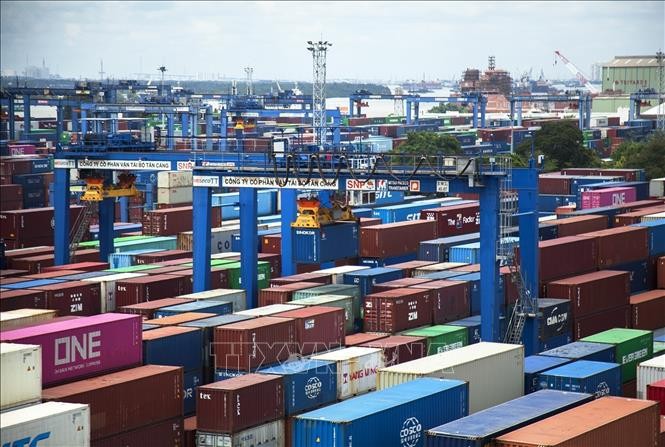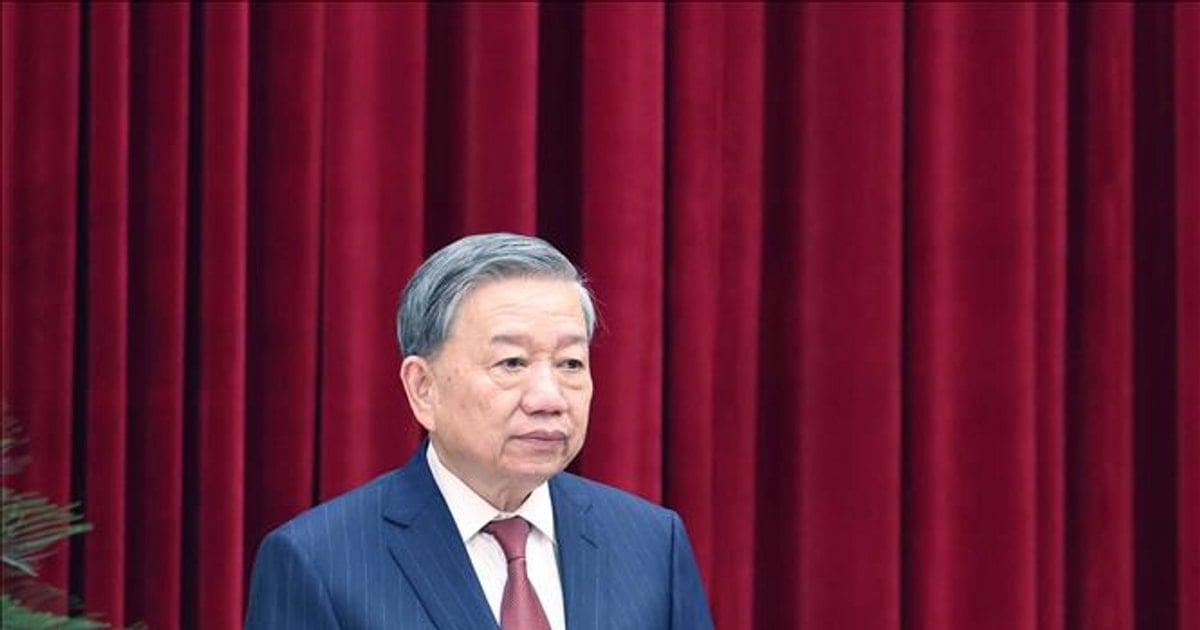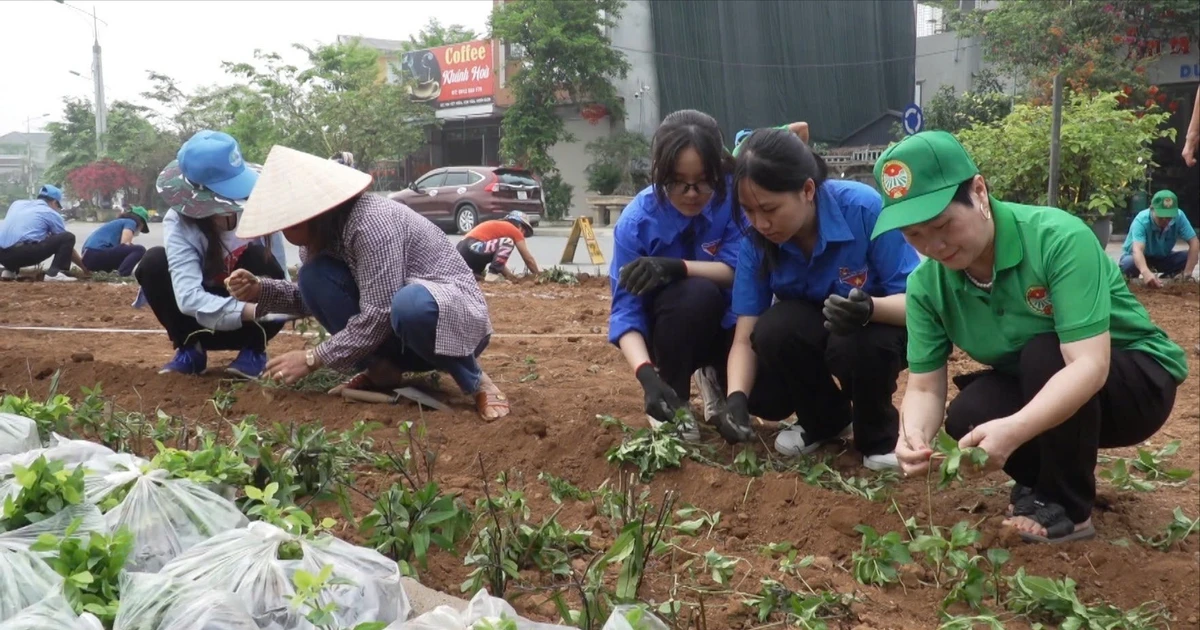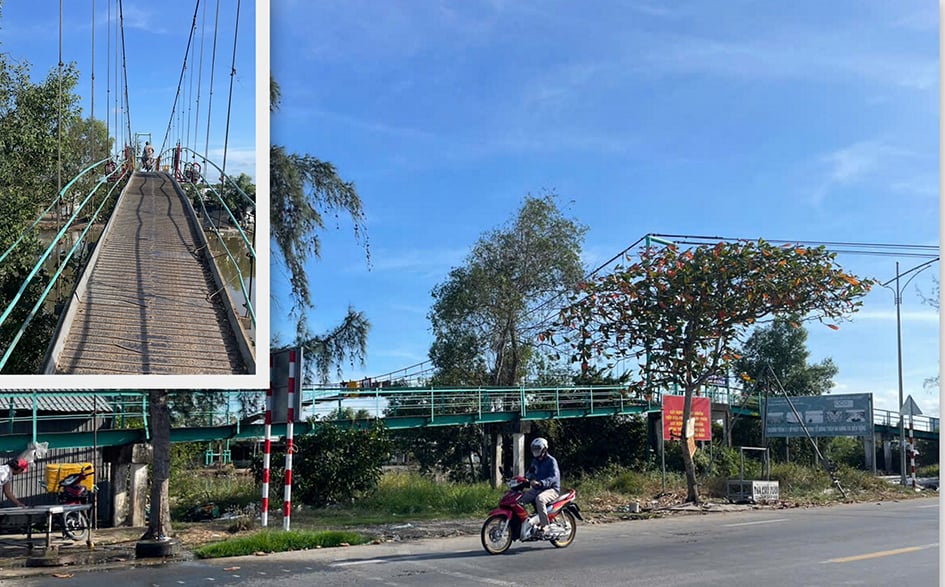
According to analysts, the reciprocal import tax rate imposed by the US will strongly impact Vietnam's electronics, machinery, textiles, footwear and wooden furniture industries in the short term, but this can become a driving force for the economy to transform towards a more sustainable direction in the future.
According to the General Statistics Office, the industries that Vietnam currently exports the most to the US are electronics, machinery and equipment, textiles, footwear and wooden products. Many businesses in these industries have a high percentage of export revenue dependent on the US market. Therefore, these five industries will be affected and most vulnerable in the trade war.
Commenting on this challenge, Dr. Bui Quy Thuan, Deputy Head of the Research Department, Vietnam Industrial Zone Finance Association (VIPFA), said that the US tax decree will certainly affect Vietnam's exports and economy in the short term. However, this is also an opportunity for Vietnam to create positive changes in the long term in the context of Vietnam's recent institutional reforms and economic and science and technology policies. Having to pay high taxes from the US may force Vietnam to accelerate its strategy of diversifying export markets, taking advantage of 17 signed free trade agreements (FTAs), such as EVFTA, CPTPP, RCEP, ... or towards new markets such as the Middle East with the Halal market with 2.2 billion people, Northeast Asia, North America, Africa, etc.
This helps reduce dependence on the US market in the long term. When exports are difficult, domestic and foreign businesses can turn to the domestic market with a population of more than 100 million.
Faced with the US tariff policy, Vietnam needs to continue bilateral negotiations with the US government on Vietnam's main export products to the US market; orient and provide information for businesses to diversify their markets; attract investment from large US corporations to Vietnam; increase purchases from the US; take advantage of free trade agreements to diversify markets; accelerate new economic policies such as public investment to stimulate demand, or develop the private economy, science and technology and innovation into practice. Finally, enhance the competitiveness of businesses by further improving the investment and business environment.
Dr. Bui Quy Thuan recommends that Vietnamese businesses can invest in technology, digitally transform faster and green production to meet higher demands from international markets. This will help improve the competitiveness and added value of Vietnamese goods in the long term.
In particular, Vietnamese enterprises need to pay more attention to investing in research and development, expanding and diversifying markets, and improving and applying technology to production activities to reduce costs and create differentiated products in order to compete fairly without worrying about tax policy risks as well as non-tariff barriers from major trading partners in the future.
The US is still one of the three largest export markets for Vietnamese fruits and vegetables. Mr. Nguyen Dinh Tung, Chairman of the Board of Directors and General Director of Vina T&T Group, said he hopes the Government will quickly clarify which items are in trade surplus and which items the US is benefiting from. Sharing that businesses will continue to adapt by shifting to find new markets, Mr. Tung also shared his desire to receive support to cut costs and stabilize the market.
Regarding changes in US tax policies, Mr. Dang Phuc Nguyen, General Secretary of the Vietnam Fruit and Vegetable Association (Vinafruit), said that currently, this country is exporting more fruits and vegetables to Vietnam. In 2024, Vietnam's fruit and vegetable exports to the US will reach 360 million USD, while imports from the US will be 540 million USD. Currently, businesses need to stay calm and not panic or worry too much. Because at this time, the US does not apply a 46% tax rate to all products and it is likely that this tax rate will not be applied to the Vietnamese fruit and vegetable industry.
However, the General Secretary of Vinafruit said that businesses in the industry need to proactively adapt by calculating and reviewing all stages in the production process, from input materials to preservation, processing, and logistics costs to reduce costs to the lowest level to ensure competitiveness with countries with lower tax rates.
Source: https://baolaocai.vn/flexible-responsibility-with-my-new-tax-sach-post399697.html


![[Photo] Overcoming all difficulties, speeding up construction progress of Hoa Binh Hydropower Plant Expansion Project](https://vstatic.vietnam.vn/vietnam/resource/IMAGE/2025/4/12/bff04b551e98484c84d74c8faa3526e0)

![[Photo] Closing of the 11th Conference of the 13th Central Committee of the Communist Party of Vietnam](https://vstatic.vietnam.vn/vietnam/resource/IMAGE/2025/4/12/114b57fe6e9b4814a5ddfacf6dfe5b7f)





















































































Comment (0)